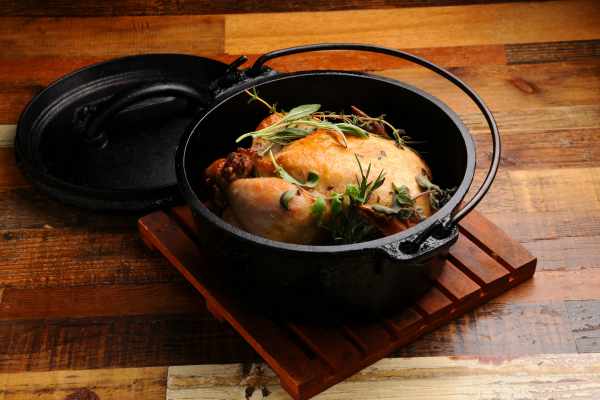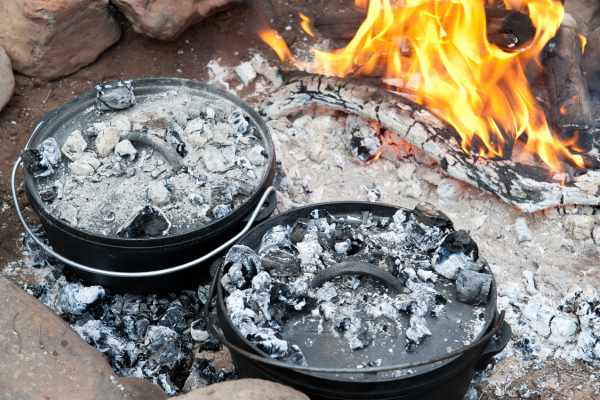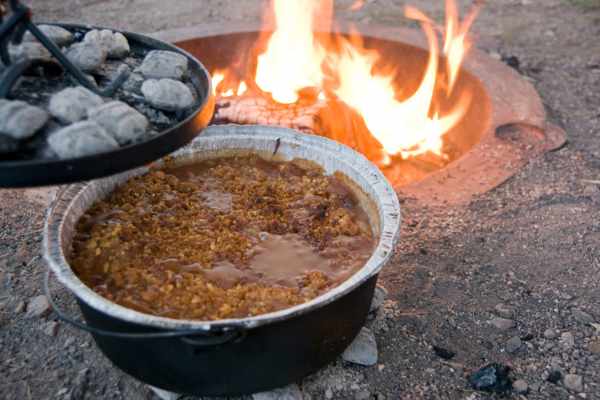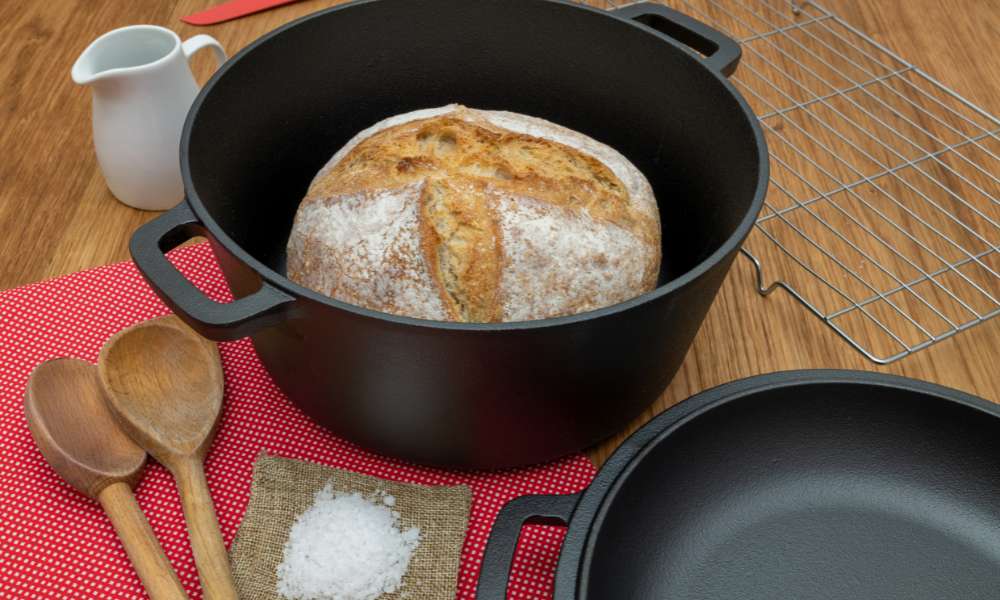Have you ever wondered “Why is it called a Dutch oven fart” This quirky phrase, steeped in humor, piques curiosity and invites exploration into its unusual origins. In this article, we’ll dive into the history of the term “Dutch oven” and unravel how it bizarrely came to be associated with “fart”. We’ll explore cultural insights, linguistic evolution, and the social contexts that have shaped this humorous expression. Whether you’re a language enthusiast or just in for a laugh, join us as we uncover the story behind this peculiar phrase and its place in modern vernacular.
The Origins of the Term “Dutch Oven

The term “Dutch oven” has a rich history that dates back to the early 1700s. Originally, these heavy cooking pots were made of cast iron and were prized for their durability and ability to retain heat. The name itself is believed to have originated from the Dutch method of manufacturing these pots, which was highly regarded across Europe. Dutch traders and craftsmen were known for their skill in casting iron, and as these pots became popular in England and the Americas, they retained the name to acknowledge their origin and the quality associated with Dutch metalwork.
Cultural Significance of the Dutch Oven in Cooking

The Dutch oven holds a revered place in culinary traditions worldwide. Originating from the Netherlands in the 17th century, this thick-walled cooking pot is known for its exceptional heat retention and versatility. Ideal for a variety of cooking methods, from baking bread to stewing meats, it has become a staple in both professional kitchens and home cooking. The term has transcended its literal meaning to embody a sense of warmth and communal dining, making it a cultural icon in cooking circles. This cookware’s enduring popularity underscores its significant role in fostering culinary creativity and heritage across generations.
Understanding the Concept of a Fart
The term “fart” refers to the release of intestinal gas, which naturally accumulates as part of the digestive process. This gas is primarily composed of nitrogen, carbon dioxide, oxygen, methane, and hydrogen. Commonly, it’s the byproduct of the bacterial decomposition of food within the large intestine, which results in various gases. While often a subject of humor, understanding its biological basis sheds light on human health and digestive function. Acknowledging the role of these gases can help demystify many aspects of our digestive health and emphasize the normalcy of this bodily function.
How Dutch Oven and Fart Come Together
The term “Dutch oven” originally refers to a thick-walled cooking pot with a tight-fitting lid, renowned for its ability to circulate heat and retain moisture. However, in a more colloquial sense, it has morphed into a humorous expression involving flatulence. This peculiar combination arises when someone creates a warm, enclosed space under the bed covers after passing gas, humorously likening it to the cooking process in a Dutch oven. This metaphor highlights the human penchant for playful language and sheds light on how everyday objects inspire vivid, albeit cheeky, linguistic expressions. Such phrases enrich our vernacular, reflecting cultural ingenuity in adding humor to the
Humorous and Not-So-Humorous Aspects of the Phrase
The term “Dutch oven fart” elicits mixed reactions, ranging from chuckles to cringes. This phrase captures a unique blend of humor, often appreciated in informal settings among friends or on social media platforms where playful banter thrives. However, it can also be seen as crude or juvenile in more formal or unfamiliar groups. Understanding the dual nature of this expression helps us appreciate not only the linguistic creativity involved but also the varied audience reception, which hinges significantly on cultural and contextual sensitivity.
Social Contexts Where the Phrase is Used
The term “Dutch oven fart” is often heard in social settings, particularly among groups that enjoy a casual, light-hearted rapport. Its usage transcends mere humor, serving as a bonding tool that can lighten the atmosphere among friends or during informal gatherings. As language plays a crucial role in social interactions, such expressions add a layer of communal identity and insider humor, marking moments of shared laughter and understanding. This phrase also frequently appears in digital media, including social platforms and chat groups, where memes and playful banter help foster a sense of connection across the virtual landscape.
Reactions and Variations Across Different Cultures

The term “Dutch oven fart” elicits a range of reactions and interpretations across the globe, reflecting diverse cultural attitudes towards humor and slang. In some cultures, this expression is embraced with laughter and seen as an amusing part of colloquial language, while in others, it might be considered crude or less acceptable in public discourse. These variations not only highlight the differences in humor appreciation but also underscore the flexibility of language to adapt to local customs and sensitivities. By examining how different societies respond to such phrases, we gain insight into the broader dynamics of cultural identity and linguistic expression.
Impact of Slang on Language Evolution
Slang plays a pivotal role in the evolution of language, reflecting societal changes and influencing communication across generations. It introduces new words and expressions that, over time, may integrate into mainstream language or highlight temporary cultural trends. This dynamic process showcases the adaptability of human communication and its responsiveness to popular culture, technology, and social movements. By examining slang, such as the term “Dutch oven fart,” linguists gain insights into shifts in societal attitudes and values, providing a colorful lens through which to view our linguistic heritage.
Similar Expressions in Other Languages

Expressions akin to “Dutch oven fart” are not unique to English. Many languages employ humorous and sometimes puzzling phrases to describe similar antics. For instance, in French, one might encounter “pet sous la couette,” translating to a fart under the duvet, which shares a playful tone. German speakers might use “Pupsdecke,” a blend of whimsy and directness akin to its English counterpart. These phrases highlight the universal nature of humor across cultures, often bound by the commonality of human experiences, yet flavored distinctly by each language’s nuances and historical contexts. Exploring these expressions offers a fascinating glimpse into how different cultures use humor to cope with life’s embarrassments
Psychological Aspects of Humor in Language
The psychological aspects of humor in language reveal how jokes, including phrases like “Dutch oven fart,” play a significant role in social bonding and emotional relief. Humor facilitates communication, eases tensions, and enhances relationships by allowing people to share experiences and emotions in a light-hearted manner. It also serves as a cognitive tool that promotes creativity by connecting seemingly unrelated ideas in surprising ways. Understanding why certain expressions are found humorous can offer deeper insights into cultural values and personal preferences, enriching our interactions and communal ties through laughter.
Conclusion
The phrase “Why is it called a Dutch oven fart” offers more than just a laugh; it provides a fascinating glimpse into the playful side of language and cultural expressions. By exploring its origins and the contexts in which it is used, we uncover the broader significance of humor in everyday communication. This exploration not only entertains but also enriches our understanding of linguistic creativity and social interaction. As we continue to decode such phrases, we appreciate the intricate ways in which language shapes, and is shaped by, our collective human experience, fostering a deeper connection among those who share in its humor.

